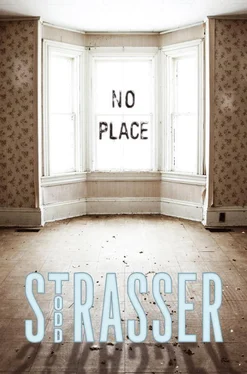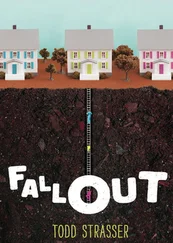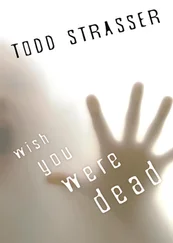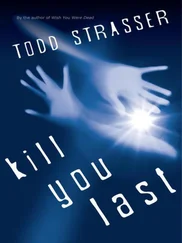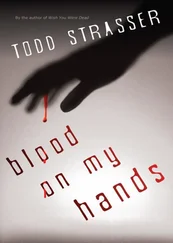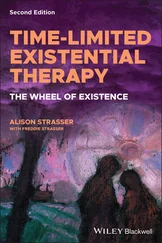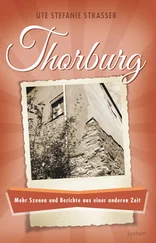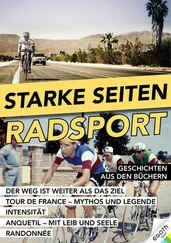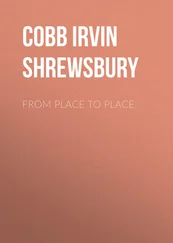Ike nodded without waiting to see what his brother did.
“Believe me, I know how you feel,” I told them. “There are times when I want to hit someone too.”
Their eyes widened with surprise and curiosity. Down the block, the elementary bus turned the corner.
“Do me a favor?” I said, getting up. “Don’t beat up anybody else today. If your dad finds out it’ll just make him madder. And maybe later we’ll find something really cool to smash into a jillion pieces.”
They nodded eagerly and got on the bus. I walked back to Uncle Ron’s to wait for Noah. The truth was, I was looking forward to breaking stuff as much as they were.
* * *
That afternoon Noah and I were in the weight room at school doing oblique medicine ball tosses, down on one knee, catching, twisting, and heaving the ball back. In no time we’d worked up a sweat and were breathing hard.
“Think your parents have any patients who might know about part-time jobs on weekends?” I asked. “Even five, ten hours would help.”
“I’ll ask them.” Noah caught the heavy ball and tossed it back. “Glad you feel that way.”
I wasn’t sure what he meant. “What way?”
“Like you want to work.”
We switched positions. Now I was twisting to my left and he was twisting to his right.
“Hell, yeah,” I said.
“Not like these people living in parks,” Noah went on. “Half of them have college degrees. They could be working.”
“Not if they can’t find jobs.” I wiped sweat off my forehead and thought of my parents.
“Come on,” Noah scoffed. “There’s all kinds of work in the energy fields up north and out west. Sometimes you just have to move. I mean, look at my grandfather. He had to move all the way from the Jim Crow South to Chicago just to be a train porter. And what about all the immigrants who come here from other countries? They’re not sitting around complaining.”
Noah was a solid catcher and hitter, but not a standout who could get a scholarship with a Division One school, or really think seriously about a baseball career. He loved the game and would probably play at Amherst, a Division III team, but basically he planned to follow his parents’ path into medicine.
“Suppose you get out of med school and can’t find a job?” I heaved the medicine ball to him.
“No way. There’s always work for doctors,” he said. “Maybe not in some well-to-do suburb, but in towns in the middle of nowhere… Indian reservations… inner-city clinics. This idea that everyone’s got to get everything handed to them on a silver platter is totally whack.”
He heaved the ball back and I caught it. “Yeah, but aren’t you the one who expects to go to med school? I mean, talk about silver platters.”
“Are you serious? I worked my butt off to get into Amherst,” Noah said, sweat dripping down his face. “And I’ll have to do the same to get into med school. You know my father was the first one in his family to go to college? And his father was the first to eat in a desegregated restaurant? No one’s handing me anything.” He gestured at the ball. “Now throw it, white boy.”
Back at Uncle Ron’s the twins and I went into the garage and smashed some old toy cars and boats with hammers. It might not have been as soothing as meditation, but it was pretty satisfying until Alicia told Aunt Julie what we were doing and she made us stop.
From that day on I made a point now and then to throw a football with Mike and Ike, or play two-on-one hoops and air hockey. I’d forgotten how good it felt to horse around and play a dumb, meaningless game for half an hour, especially when the rest of the evening would be spent tiptoeing around Uncle Ron’s volcanic moods.
That Friday Noah and I went back to Derek’s studio to hear a new band record, and over the weekend I found some work helping one of Uncle Ron’s neighbors clear brush from the back of his lot and chop some dead trees into firewood. On Sunday afternoon Talia and I went with her family to a dressage event where she placed third, and afterward we all went out to dinner to celebrate. It was fun… until they dropped me off back at Uncle Ron’s and I rejoined my parents as the somewhat less-than-welcome poor relations.
* * *
One day the following week I was leaving the cafeteria with Noah and some friends from the team, talking and laughing when the ratty-haired kid at the table in the hall called out, “Hey, Dan, ready to sign up?”
I felt myself tense. All my friends, plus a couple of kids at the sign-up table, were watching and listening. “Why do you ask?”
“Seems like a good time,” he said.
Had he heard that we’d lost our home? Did he think that would make me more sympathetic to his cause? “Why’s that?” I gave him a hard look.
Some kids will back down when you give them that look, but this kid kept his eyes steadily on mine. “Just figured for once I had your undivided attention.”
It took a second to realize that for the past few weeks I’d been with Talia every time I’d passed him, and he probably remembered that time she’d pulled me away before he had a chance to lay out his spiel. But Talia wasn’t feeling well and had stayed home that day. Still, it had to take guts to stand up in front of senior athletes and call one out. I looked at the posters on the wall behind him.
400 AMERICANS HAVE MORE
THAN HALF THE WEALTH IN THIS COUNTRY.
WHY IS IT EASIER TO BELIEVE THAT
150,000,000 AMERICANS ARE BEING LAZY
RATHER THAN THAT 400 AMERICANS ARE BEING GREEDY?
STOP THE WAR ON THE POOR!
BAIL OUT SCHOOLS,
NOT BANKS!
“People are suffering,” the kid said. “They can’t find work, or get a decent education. You think it’s fair that someone dies because he can’t pay for adequate medical care while someone else with the same disease lives because he can?”
My friends started to drift away. Meanwhile, I thought of Meg’s family living in Dignityville because her mom and brother had to spend practically everything they earned on medicine for Mr. Fine. I used to think that life was like sports: Things were rarely fair. The other team cheated. Your best player got hurt. You threw a perfect strike and the ump called it a ball.
But that’s a game, not life.
In sports people don’t die because they can’t afford medicine. They don’t become homeless because a company goes out of business or moves jobs overseas.
I gestured at the posters. “You really think marching’s gonna make a difference?”
The ratty-haired kid looked surprised. “You don’t think protests changed the war in Vietnam or segregation in the South?”
I couldn’t say. We may have studied those events in school, but those old protest movements were about as real to me as trigonometry. You learned what you needed to ace the test. And not for an instant did it feel like it had any actual meaning in your life.
“If we don’t do something, it’s only going to get worse,” the kid said. “And it’s not the kind of thing one person can do. Marches show strength. They tell politicians that we have the numbers and the votes to change elections.”
I was more than three years away from being able to drink legally, but only months from being able to vote. Sure, voting may have been way more important, but given the choice, I would have switched those two age requirements in a heartbeat.
The kid was still waiting for me to respond.
“Can I ask you something personal?” I said. “Why do you care? You homeless or something?”
Читать дальше
